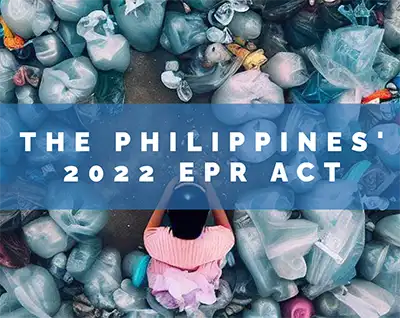2024 Emerging trends in CSR to stay relevant, sustainable, and maximise a company’s social impact

In recent years, Corporate Social Responsibility (CSR) has evolved from being viewed by many companies as a separate philanthropic endeavour or a PR strategy to being a fundamental aspect of business strategy. As companies recognise their role in shaping society and the environment, emerging trends in CSR are reshaping the landscape of corporate behaviour. From heightened emphasis on environmental sustainability to innovative approaches in community engagement, the evolving CSR landscape reflects a shifting paradigm in business ethics and accountability.
This post delves into some of the emerging trends shaping CSR practices with a particular focus on programs in the developing world and offers insights into the evolving expectations of stakeholders.
Why is CSR becoming a more intrinsic part of business strategy?
Changing business landscapes coupled with evolving societal expectations and regulatory pressures has compelled companies to prioritise CSR as an integral part of their operations and strategy. Beyond ethical considerations, CSR is increasingly viewed as a strategic imperative for maintaining competitiveness, managing risks, and ensuring long-term sustainability.
Feeding this is a notable shift in societal expectations regarding the role of businesses. Stakeholders, including customers, employees, investors, and communities, are increasingly expecting companies to not only deliver financial returns but also to demonstrate ethical behaviour and contribute positively to society. As a result, CSR becomes a source of competitive advantage with companies that integrate sustainability into their business models differentiating themselves in the market to attract and retain customers and access new markets and opportunities. CSR initiatives are also shown to enhance employee morale, productivity, and talent attraction and retention.
Hand-in-hand with this societal shift comes pressure from governments and regulatory bodies who are imposing stricter regulations and reporting requirements related to environmental, social, and governance (ESG) issues. Compliance with these regulations is becoming essential for companies to operate legally and maintain access to capital markets. Institutional investors, such as pension funds and asset managers, are increasingly considering ESG factors when making investment decisions. Companies with robust CSR practices are perceived as lower risk and more attractive investment opportunities, leading to greater access to capital and potentially lower cost of capital.
Companies are recognising that neglecting CSR can pose significant risks to their reputation, brand value, and long-term viability. Instances of environmental disasters, labour abuses, or unethical practices can lead to public backlash, legal challenges, and financial losses. Recognising the interconnectedness of business with the environment and society, companies are realising the importance of sustainable practices for long-term business success. Addressing environmental challenges, promoting social inclusion, and fostering ethical governance are seen as essential for securing a company’s licence to operate in the long run.
What are the emerging trends in CSR in the developing world?
Let’s take a look at some examples of emerging trends across the developing world that are shaping how businesses approach their CSR programs to address social and environmental issues.

1. Employee engagement and wellbeing
Companies are recognising the importance of employee wellbeing and are investing in programs to support physical and mental health, work-life balance, and professional development. Employee volunteer programs and initiatives that empower employees to contribute to CSR efforts are also gaining popularity. With more of a focus by society in general on social and environmental action, workplace giving programs are becoming more popular and employees are becoming more engaged in driving social change through their place of employment and asking more of their employers to get it done.
2. Environmental sustainability
Unsurprisingly, with growing concerns about climate change and environmental degradation, CSR initiatives across the world are placing greater emphasis on environmental sustainability. Companies are placing more emphasis on reducing their carbon footprint, implementing renewable energy sources, and adopting sustainable practices throughout their supply chains. In addition, more CSR funding is being directed to projects aimed at reducing carbon emissions, conserving natural resources, promoting renewable energy, and mitigating the impact of climate change on vulnerable communities.
3. Ethical supply chains
Consumers are increasingly concerned about the ethical sourcing of products and are demanding transparency and accountability throughout the supply chain. Companies are taking steps to ensure responsible sourcing of materials, fair labour practices, ethical production processes, and environmental conservation. CSR efforts in the developing world are therefore increasingly focused on satisfying these factors through initiatives aimed at improving working conditions, promoting fair wages, and preventing child labour and exploitation in supply chains. In addition, companies are prioritising suppliers who consider the environment in their operations by assessing and mitigating environmental risk factors.
4. Inclusive growth
There’s an increasing focus on addressing social justice issues such as racial and gender equality, diversity, and inclusion in the developing world. Companies are expected to demonstrate a commitment to fair treatment and opportunities for all stakeholders, both within their organisations and in the communities they operate in. CSR initiatives are increasingly prioritising inclusive growth, aiming to create economic opportunities for marginalised communities, including women, youth, and people with disabilities. This includes initiatives such as vocational training, entrepreneurship development, and support for small-scale farmers and artisans.
5. Technology and innovation
Companies are leveraging technology to drive positive social and economic change in the developing world. This includes initiatives focused on digital inclusion, access to information and communication technologies (ICTs), e-commerce platforms for small businesses, and mobile-based solutions for healthcare and education. In addition, initiatives such as social entrepreneurship, impact investing, and cross-sector collaboration aim to create scalable solutions that address systemic challenges and catalyse sustainable development.
6. Localised CSR initiatives and stakeholder engagement
Collaboration between companies, governments, NGOs, and other stakeholders is becoming increasingly important in addressing complex social and environmental challenges. Companies are forming partnerships with local NGOs, community-based organisations, and government agencies to leverage their collective resources and expertise for greater impact. These partnerships leverage local knowledge, networks, and resources to maximise the impact of CSR initiatives and ensure their sustainability. Successful CSR initiatives involve active engagement with local communities and stakeholders to ensure that projects are aligned with their needs, priorities, and aspirations. This includes participatory decision-making processes, community consultations, and feedback mechanisms to promote transparency and accountability. There’s a growing emphasis on engaging with local communities and addressing their specific needs and concerns with companies moving away from one-size-fits-all CSR initiatives and instead focusing on initiatives that have a tangible impact on the communities where they operate.
7. Transparency and accountability
Stakeholders, including consumers, investors, and employees, are demanding greater transparency and accountability from companies regarding their CSR initiatives. This includes transparent reporting on environmental, social, and governance (ESG) metrics and the impact of CSR programs. Companies are adopting frameworks such as the United Nations Sustainable Development Goals (SDGs) and the Global Reporting Initiative (GRI) to track progress, communicate results, and enhance accountability. As CSR expectations evolve globally, companies operating in the developing world are facing increased scrutiny and regulatory requirements related to social and environmental responsibility. Effective CSR strategies in these regions involve proactive risk management, compliance with local laws and regulations, and adherence to international standards and guidelines with transparency and accountability.
These trends reflect the growing recognition of the role that businesses can play in driving positive social and environmental change in the developing world and reflect a broader shift towards a more holistic and integrated approach to CSR, where companies recognise the interconnectedness of social, environmental, and economic issues and the importance of addressing them collectively.
How to align emerging CSR trends with the needs of local communities to maximise impact?
Ok, we know the general trends but how can a company based in Australia, for example, know what kinds of CSR initiatives are relevant within the developing world context to ensure their CSR programs are needed and impactful?

The most effective way of ensuring relevance is through strategic partnerships and collaborations with local organisations, NGOs, community-based organisations or community groups that have existing expertise and networks on the ground. By partnering with trusted local entities, companies can ensure that their CSR initiatives are aligned with real-life needs and implemented effectively.
Engaging a CSR advisory service can facilitate the process for companies in accessing the necessary local knowledge and expertise to develop strong CSR programs. For companies with no idea where to start, a CSR advisory service can facilitate the process and take a lot of the time and stress out of it. The section below goes into more detail about when it may be appropriate to use such a service.
For companies looking to go it alone without a CSR advisory service, the stakeholder engagement and needs assessment process is crucial. Companies should actively engage with their target communities, NGOs, government agencies, and other stakeholders to understand the specific social, economic, and environmental needs on the ground. Conducting thorough needs assessments will help the company identify priority areas where their CSR efforts can have the most meaningful impact. Larger companies may have an entire department dedicated to CSR and may be easily able to do this, but for smaller companies this may not be an option.
Once established, monitoring impact assessment is essential in evaluating whether or not programs are having the intended effect. Companies should establish robust monitoring and evaluation mechanisms to track the outcomes and impact of their CSR initiatives on the ground. By collecting data, measuring progress, and soliciting feedback from stakeholders, companies can continuously refine their strategies and ensure that they are effectively addressing real-life needs. Reporting these findings to stakeholders is essential in maintaining transparency and accountability and ensuring the credibility of CSR efforts. Companies should regularly communicate about their CSR activities, outcomes, and challenges, and be open to feedback and scrutiny from stakeholders.
By adopting these approaches, companies can align CSR trends with real-life needs on the ground, maximise their positive impact, and contribute to sustainable development and social progress in the communities where they operate.
Why should companies consider using a CSR advisory service?
CSR advisory services offer specialised expertise in sustainability, social impact, and corporate responsibility. They can provide guidance on developing comprehensive CSR strategies, identifying key focus areas, and implementing effective initiatives aligned with the company’s goals and values. Many companies don’t have the expertise to develop effective and sustainable CSR programs themselves. As a result, what you often see is companies instead channel CSR funds into one-time donations, volunteer activities, or short-term projects such as food aid, disaster relief, or charity events. These initiatives can provide quick relief and offer immediate visibility for the company but may not necessarily address underlying systemic issues and make no long-term change. A more impactful approach to consider would be to use CSR funding for projects that work to address systemic challenges and root causes of social, economic, or environmental issues and create sustainable, lasting impact over an extended period of time. This can involve strategic investments, partnerships, and capacity-building initiatives with a focus on driving systemic change, promoting social inclusion, and fostering community development. Examples could include education programs, environmental sustainability initiatives, skills training, and community development projects, all of which require ongoing commitment, resources, and collaboration to achieve meaningful outcomes but can have considerable impact over time. These sorts of programs often need specialist skills which is where a CSR advisor can come in. CSR advisory services, like Dana Asia, can help a company identify their priorities and recommend powerful programs that meet the company’s objectives while achieving lasting change.
In addition to impact benefits, advisory services can help companies stay informed about emerging trends, best practices, and regulatory requirements in the rapidly evolving field of corporate responsibility. By keeping abreast of developments, companies can ensure compliance with relevant standards and regulations, reducing the risk of reputational damage or legal issues. Such services can also identify and mitigate risks related to ESG issues and proactively address potential risks such as supply chain vulnerabilities, climate change impacts, or labour practices, to help companies improve their resilience and long-term sustainability. Implementing robust CSR practices with the guidance of advisory services can enhance a company’s reputation and brand value and by demonstrating a commitment to social responsibility, transparency, and ethical business practices, companies can build trust with customers, investors, employees, and other stakeholders to strengthen their competitive position in the market. Advisors can offer fresh perspectives, challenge conventional thinking, and inspire creative solutions to address complex social and environmental challenges, fostering a culture of innovation within the company.
Overall, engaging with a CSR advisory service enables companies to leverage external expertise, stay informed, optimise resources, enhance reputation, mitigate risks, and drive positive social and environmental impact, ultimately contributing to long-term business success and sustainable development.
Dana Asia’s CSR advisory service
Dana Asia aims to match the interests and priorities of corporate partners with the needs on the ground in order to create CSR programs that are truly needed and impactful long-term. Our services offer expert guidance and strategic advice on developing and implementing effective CSR initiatives aligned with your company’s values, objectives, and stakeholder expectations. We are able to provide valuable insights into emerging trends, best practices, and regulatory requirements, helping companies stay ahead of the curve and navigate complex sustainability challenges. By leveraging the expertise of Dana Asia as a CSR advisor, companies can optimise their CSR strategies, mitigate risks, enhance their reputation, and maximise their positive impact on society and the environment.







